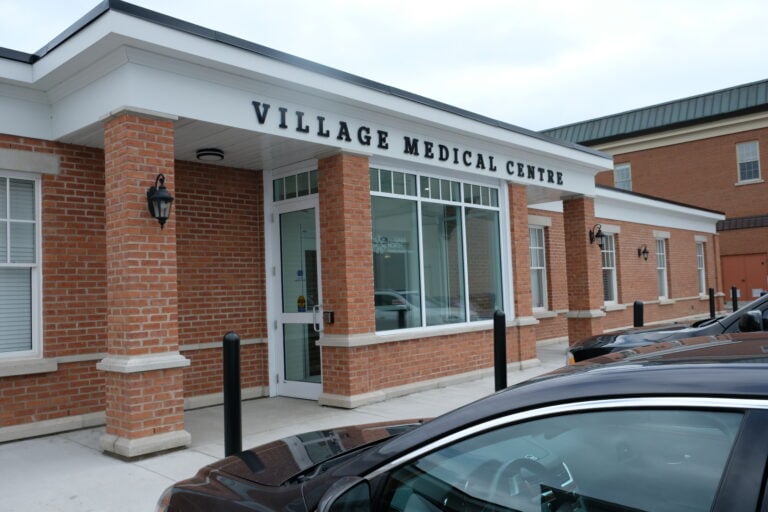Cases of COVID-19 are dropping more sharply than expected across Ontario, says Niagara’s chief medical officer of health.
Dr. Mustafa Hirji said it’s a “good news” story, with a steady drop in the reproduction number (the average number of people one person will infect) — despite large numbers of people ignoring lockdown rules.
On Tuesday, Hirji said hospitalizations and ICU numbers are also coming down — a positive indicator that things are on the right track to reopen, though there is still “a ways” to go.
He attributes the decline in cases to rising vaccination rates, particularly in COVID hot spots. As of Wednesday, the region had 882 active cases (down from 1,247 a week ago) and Niagara-on-the-Lake had 19 (down from 39).
“With a lot more vaccines over the last few weeks having been directed towards the hotspots where most of the infection is spreading, I think it’s actually made a noticeable difference in the spread of infection.”
In Niagara, about 60 per cent of adults have been vaccinated, with about 70 per cent scheduled to receive a vaccine.
Niagara’s cases are not coming down as quickly as the provincial average, however the numbers are falling. Hirji said he is optimistic cases will be down by mid-June, the date he has suggested would be the right time to end the stay-at-home order – if things continue on the current path.
Niagara hospitals continue to take patients from regions that are over capacity.
He said he thinks the province and region should have no trouble meeting Ontario’s vaccination targets to start a phased reopening — 60 per cent of adults by mid-June. He noted it is a “low bar” as Niagara already has over 60 per cent of adults vaccinated.
He said he is surprised the province once again decided not to listen to the federal health advice, which says reopening shouldn’t happen until at least 75 per cent of adults are vaccinated.
Modelling from the Public Health Agency of Canada shows that with 55 per cent of adults vaccinated, there will still be a small surge in cases before numbers start to decline again.
“Instead, if you open up with 75 per cent of adults vaccinated, you’re not going to see that surge and so they were really advocating that 75 per cent of adults should be vaccinated and 20 per cent have received their second dose. And so it’s unusual that a province has gone with a lower threshold.”
However, despite the province's decision, he suspects by mid-June 75 per cent of Ontario adults will have their first shot.
Second doses by then could also be “in the ballpark” of the recommended 20 per cent, he said.
“I’s unusual that we didn’t just go with what the Public Health Agency of Canada put out, so we could be aligned across the country, given that we’re probably going to meet these targets anyway.”
He said it’s important for people to continue to get vaccinated, especially younger age groups, which through the pandemic have been the highest source of infection spread.
In the 18 to 29 age group, he said about 25 per cent of people are vaccinated. The number climbs to above 50 per cent when factoring in bookings.
More than 60 per cent of people aged 30 to 39 are vaccinated or booked to be vaccinated.
He said about 25 per cent of children 12 to 17 were booked for vaccinations as of Tuesday.
Hirji reminds people participating in newly opened outdoor activities that following health advice is “key.”
“We’re not yet allowing people to stop wearing masks and keeping distance,” he said.
“What occurred this past long weekend wasn’t relaxing the rules and returning to normal with outdoor activities,” he said.
“It was relaxing the rules to permit some of these outdoor activities, but we still need to be mindful of either keeping distance or wearing a mask when participating in these activities, because there still is some risk, and we’re not at the stage where we can start to reopen.”
He said people playing sports should not be travelling between regions to do so.
“You don’t want to be staying over with others or carpooling where you’re going to be in close contact and could spread infections. We don’t want to combine playing golf with having drinks or eating with your friends at a picnic and possibly spreading infection like that.”



.jpg)







